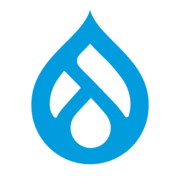Drupal May Seem Scary, but it Can Really Become Your Best Friend
March 22, 2016
Drupal May Seem Scary, but it Can Really Become Your Best Friend

Score 10 out of 10
Vetted Review
Verified User
Overall Satisfaction with Drupal
My company is a digital agency that specializes in building and managing content management systems for clients. We primarily recommend Drupal as a solution, and use it for our own company website because of its flexibility as a CMS. While we do use other platforms and software within the company and externally for marketing purposes, from a developer's standpoint, Drupal is a crucial part both for managing our own website and in providing a great solution for clients.
Pros
- It's the most flexible CMS I have worked with, including other open source solutions and proprietary.
- The development community is invaluable. Unlike some CMSs, drupal developers are all about the big picture when it comes to building features, and work together to create a solid solution, rather than trying to sell options that may or may not be a good fit for what you need.
- Drupal is open source, which means anything really is possible in terms of development. It has very few limitations when building custom websites, and the only road block tends to be the amount of time or money available to spend on a solution.
Cons
- If all you want is a simple brochure site and blog, it may not be the best choice. While it is fully capable of doing both, it may take longer to set up than a simple WordPress or Squarespace type site. On the other side, if you do plan on building out and customizing a site it may be worth the consideration in the long run since this is where it shines.
- For development the learning curve can seem steep. Because it's such a robust system that offers so much in terms of capabilities, it may take a while to get a full handle on everything.
- Recommending Drupal to clients has given us many opportunities for new/continuous work.
- Drupal is an appropriate solution for a wide array of needs, which widens the available market for potential work.
- The exceptionally supportive community that Drupal has allows for developers to pick it up quickly.
Between these products, as a developer I would most likely go with Drupal unless I had a very specific reason to go with something else. To put it simply, Drupal is capable of anything that these other products can do. It may take a little longer to configure it in some cases, but it is so expansive as a platform that you don't have to worry about limitations of proprietary software, or general limitations caused by a main purpose of a product, like WordPress tends to have. While these options have great uses within their niche, they are limited by these uses. For example: WordPress is a fantastic platform for a simple brochure site with a blog. HubSpot COS is great if you're only focus is on targeted marketing. Drupal on the other hand, is capable of them all, but if you decide later you want more flexible filtering of content, better organization of types of content and fields, expansive commerce, etc. Drupal will be much easier to build this.


Comments
Please log in to join the conversation